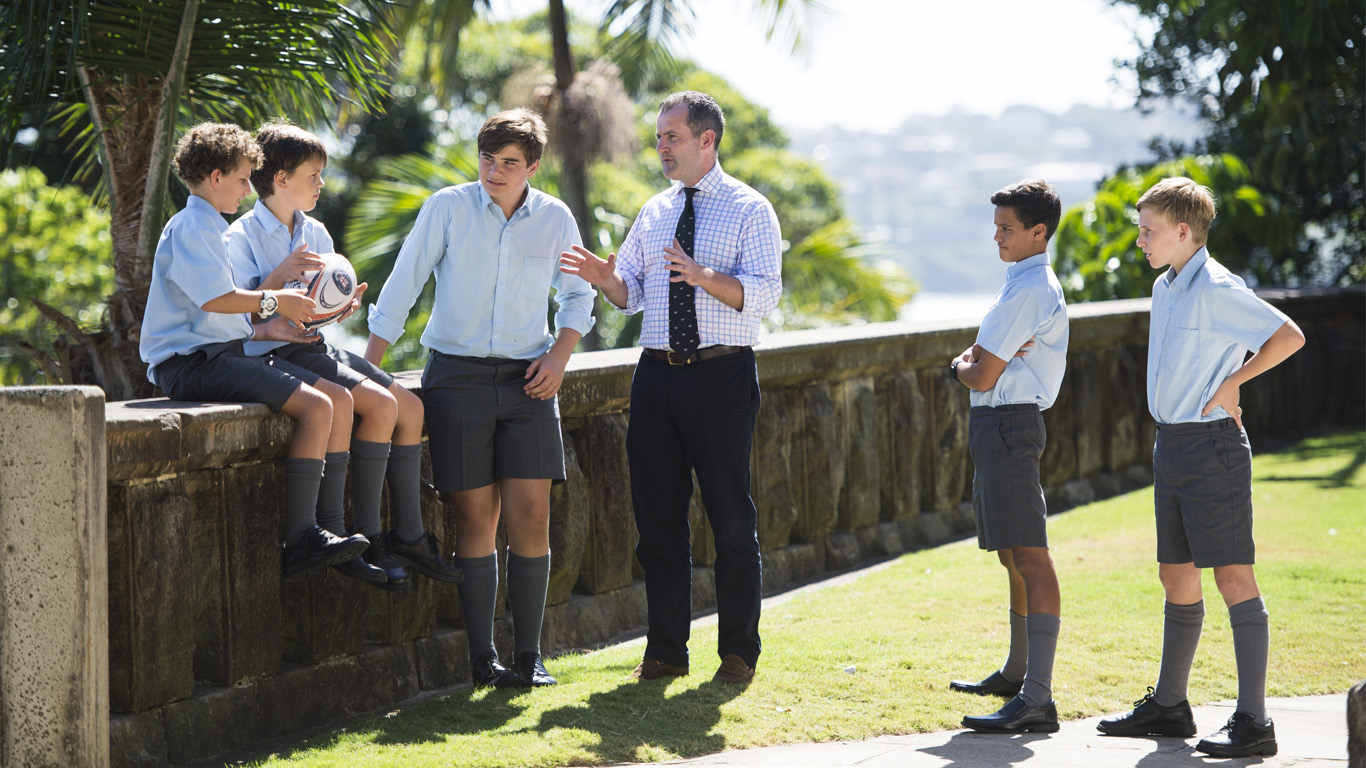
If you didn’t attend a boarding school yourself, your impressions of residential schools have probably been formed, at least in part, by Hollywood.
It seems that every decade produces an era-defining tale set in a boarding school. From the 60s counter-culture touchstone, If, to Australia’s own haunting 70s classic, Picnic at Hanging Rock, Dead Poets Society in the 80s, and, of course, the Harry Potter blockbusters of recent times, there is no shortage of movies that centre on the intrigue and exhilaration of adolescent communal living.
Reality is usually a little more mundane than the big screen version but that hasn’t slowed the resurgence of Australia’s boarding schools.
Boarding is well and truly back in vogue with more than 25,000 students nation-wide choosing to live at their school — an increase of 25 per cent over the last decade.
Many of these students come from rural and regional areas where boarding is often a necessity but changing family dynamics are seeing more city-based and international students opting to board.
In families where both parents work full-time, the close supervision and access to extracurricular activities that boarding provides makes it an attractive option. In the senior years, students are increasingly choosing to board so they can concentrate on their studies free of the distractions of home and the time-drain of commuting.
Living at school offers students many unique advantages including:
Academic support and extra tuition
When you live at school a teacher is never very far away to lend a hand with a sticky problem or read through a draft essay. Allocated study periods ensure that students have adequate time in their days to get through their homework and no excuses for not doing it.
A structured environment
Boarding is characterised by routine and stability. Students learn good habits early on and for busy parents working long hours, the inbuilt structure of boarding environments is a boon. At schools such as The King’s School in Parramatta, fully a quarter of boarders are Sydney-based; boarding not out of need but because their parents want them to benefit from the “boarding experience”, the school says.
Extracurricular opportunities
Living at school means never missing footy practice again. Even better, it allows students to participate in everything on offer and try new sports and activities. Most boarding schools emphasise physical activity to help promote resilience and teamwork and keep their students fit and healthy, but creative and intellectual opportunities abound. Meanwhile, regular excursions, entertainment and social events keep students busy and engaged with life outside of school. Boarding is rarely boring.
Self-reliance
By its nature, boarding promotes independence and self-management; skills that prove useful throughout a lifetime.
“Boarders develop resilience and independence at an earlier age,” says Wenona principal, Dr Briony Scott. “It’s not that they grow up quicker but they definitely do become more independent.
“Boarders learn to look after themselves really well. They learn to look after their things and take responsibility for their time.”
Kate Obermayer, a Cochlear executive and former Wenona boarder agrees, telling the Weekly Times: “Boarding gave me an inner dependence on myself, which continues to help me on a daily basis in my role — no one is cracking the whip except me.
“I have to be proactive. I have to think about all angles. I have to be organised. I learnt all of that at boarding school.”
Lifelong friendships
Close-quarters living promotes tight bonds between students that often carry through their whole lives. Schools with a significant international boarding cohort like Cranbrook in Sydney’s Eastern Suburbs offer students the opportunity to make “friends from all corners of the globe”, the school says.
This view is supported by research conducted by the University of Adelaide. A 2004 survey of boarding school students revealed that the overwhelming majority of respondents had formed “intense, enduring” friendships at boarding school with fellow students from around the world. The report author concluded that for these students boarding “was a significant factor in fostering independence and embracing cultural diversity”, which helped to “prepare them for life in an increasingly global world”.
Overall, the respondents viewed boarding with fondness and appreciation. As one survey respondent wrote: “For all Grammar’s faults, I wouldn’t exchange this experience for anything in the world!”
Hogwarts may be a fantasy but it seems that, for many students, boarding does, in fact, add a touch of magic to school life.
References:
Boarding schools appealing to the city as much as the country — Emily Parkinson, Australian Financial Review, May 6, 2016
http://www.afr.com/news/special-reports/boarding-schools-appealing-to-the-city-as-much-as-the-country-20160503-golmnt
Wenona alumnae explain how boarding at the North Sydney school has shaped their lives — Weekly Times, November 1, 2016
http://www.weeklytimesnow.com.au/country-living/education/secondary/wenona-alumnae-explain-how-boarding-at-the-north-sydney-school-has-shaped-their-lives/news-story/760604de5f5f2811d3e8a98a739c3753?nk=71c909cf3ea5cdff59e0c34f1859f415-1495110031
An Australian co-educational boarding school as a crucible for life: a humanistic sociological study of students’ attitudes from their own memoirs — Matthew A White, PhD Thesis, School of Education, University of Adelaide, 2004
https://digital.library.adelaide.edu.au/dspace/bitstream/2440/37957/8/02whole.pdf

